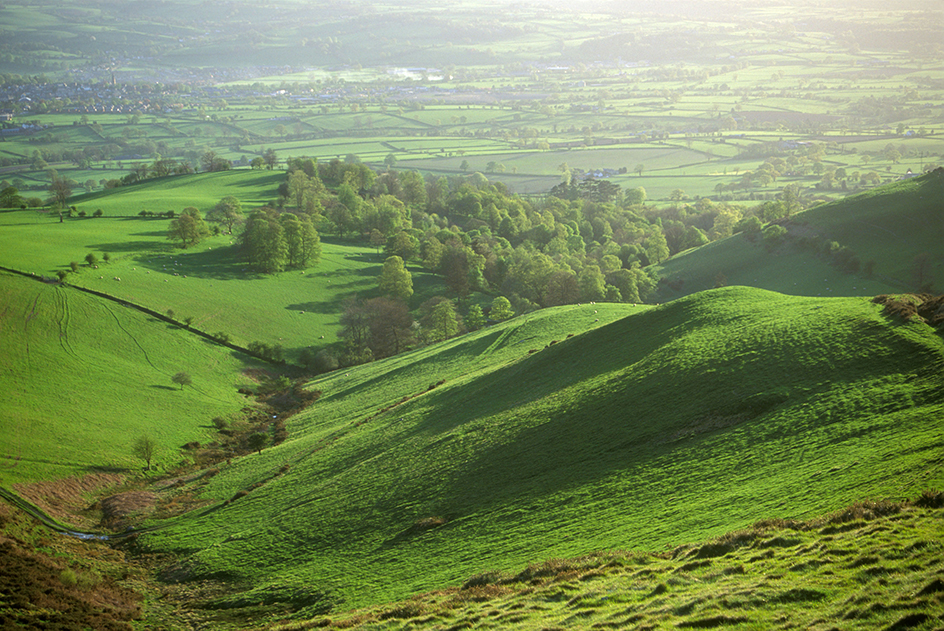Denbighshire << DEHN bee shuhr >> (pop. 95,818) is a local government area of North Wales, in the United Kingdom. In 1996, it became a unitary authority, a government unit responsible for all local government services within its boundaries. The town of Ruthin, from which the area is administered, lies about 18 miles (29 kilometers) inland from the North Wales coastline. The Welsh name of the area is Sir Ddinbych.

The local economy is chiefly based on tourism and agriculture. There is also some light industry. Many inhabitants of Denbighshire, especially those living in rural areas, speak both English and Welsh. On the north coast lie the popular seaside resorts of Prestatyn and Rhyl. A little way inland lies the town of St. Asaph, which has the smallest medieval cathedral in the United Kingdom. One of the church’s bishops was William Morgan, who produced the first translation of the Bible in Welsh in 1588.
The area is divided from north to south by a beautiful valley called the Vale of Clwyd. In the center of the valley are the small market towns of Denbigh and Ruthin. In the southeast lies the town of Llangollen on the River Dee. Llangollen is the site of the International Music Eisteddfod, a popular summer festival of music and the arts. North of the Dee Valley, in the Clwydian range, lies the Horseshoe Pass.
The name Denbighshire was given to a county in this area in the early 1500’s following the Act of Union, an act of Parliament that joined Wales and England under a single government. From 1974 to 1996, Denbighshire formed part of the county of Clwyd. The boundaries of Denbighshire today differ from those of the original county.
